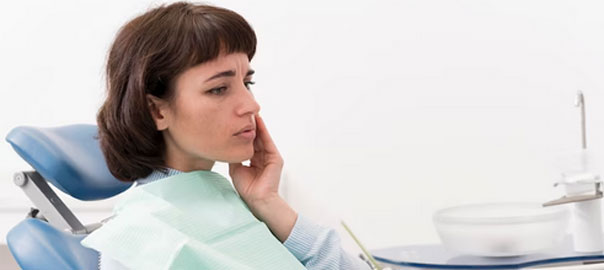
Can an insignificant ulcer in your mouth Lead to CANCER?
Mouth cancer can be a devastating disease that significantly affects a person’s quality of life. Unfortunately, these types of cancers are rising, with tobacco and alcohol use being the most significant risk factors. However, not only smokers and people who drink are at risk, research suggests that human papillomavirus (HPV) significantly contributes to developing mouth and neck cancers.
According to Lt. Gen. Dr. Vimal Arora, the Chief Clinical Officer at Clove Dental, “Prevention is better than cure. It is necessary to maintain good oral hygiene habits, such as regular brushing, flossing, and rinsing with an antiseptic mouthwash, to prevent the development of oral cancers.”
In addition, Dr. Vimal Arora suggests avoiding tobacco and limiting alcohol consumption to lower the risk of developing oral cancers. He also recommends vaccinating against HPV, a significant risk factor for certain mouth and neck cancers.
The 5 “S” of Oral Cancer
Oral cancer is a serious and potentially life-threatening condition that can arise due to various factors. To reduce the risk of developing oral cancer, it is recommended to adopt a healthy lifestyle and take preventative measures. Here are five important factors that can contribute to the development of oral cancer, commonly known as the “5 S”:
- Sharp tooth: This refers to teeth that are jagged or broken, which can irritate the inside of the mouth.
- Smoking: Tobacco use, including cigarettes, cigars, and chewing tobacco, is a major risk factor for oral cancer. The chemicals in tobacco can damage the cells in the mouth and throat, increasing the risk of cancer.
- Spices: Some spices, particularly those used in certain types of cuisine (such as Indian and Southeast Asian food), have been linked to a higher risk of oral cancer.
- Sex: Certain strains of the human papillomavirus (HPV), which are transmitted through sexual contact, can cause oral cancer. This risk is higher for people who have multiple sexual partners or engage in oral sex.
- Spirit: Drinking alcohol excessively and frequently can increase the risk of oral cancer. Alcohol can damage the cells in the mouth and throat and weaken the immune system, making it harder for the body to fight off cancerous growths.
Weighing the Benefits and Drawbacks
Lasers are widely used in dentistry for a variety of procedures. Some of the advantages and disadvantages of using lasers in dentistry are:
Advantages
- Precision: Lasers can target specific areas with high accuracy, allowing for more precise treatment and less damage to surrounding tissues.
- Reduced pain: Lasers can often be used without anesthesia and reduce postoperative pain and discomfort.
- Faster healing: Laser therapy can promote faster healing times due to reduced trauma and inflammation.
- Reduced bleeding: Lasers can help reduce bleeding during surgery and minimize the need for sutures.
- Reduced infection: Lasers can sterilize and disinfect the treatment area, reducing the disease risk.
It’s important to note that not everyone who is exposed to these factors will develop cancer. Regular screening and early detection can improve the chances of successful treatment and recovery.
Prevention of Mouth and Neck Cancer
Several measures can be taken to reduce the risk of developing mouth and neck cancer:
- Avoid tobacco: Tobacco is the leading cause of mouth and neck cancer, so avoiding all forms, including smoking and chewing tobacco, can significantly reduce your risk.
- Limit alcohol consumption: Drinking alcohol in excess is also a significant risk factor for mouth and neck cancer, so it’s essential to limit your alcohol intake.
- Eat a healthy diet: A diet rich in fruits and vegetables may help reduce the risk of mouth and neck cancer.
- Practice good oral hygiene: Regular brushing and flossing can help prevent oral cancer.
- Protect yourself from the sun: Use sunscreen and wear a hat to protect your neck and face from the harmful effects of the sun.
- Get vaccinated: The HPV vaccine can prevent certain types of mouth and neck cancers caused by the human papillomavirus (HPV).
- Regular dental checkups: Regular dental checkups can help identify any early signs of mouth and neck cancer, improving the chances of successful treatment.
Conclusion
To prevent mouth and neck cancers, it is essential to avoid tobacco and alcohol use, practice safe sex and get vaccinated against HPV, eat a healthy diet, and reduce exposure to environmental toxins. Regular dental checkups can also help detect any abnormalities or suspicious growths.
Leave a Reply
Leave a Reply
Explore More Similar Posts
Explore More Blogs


Leave a Reply